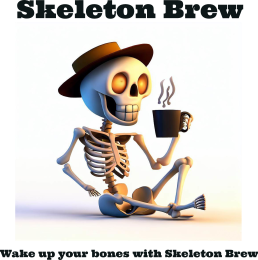This week's brewing tip focuses on making cold brew coffee and highlights the advantages of using coarse ground coffee. Cold brew involves steeping coffee grounds in cold or room temperature water for 12 to 24 hours. Coarse ground coffee is recommended for this method for several key reasons.

Extraction Process
In cold brew, extraction is slower than in hot brewing methods. Coarse ground coffee is ideal because its larger particles allow for this slower extraction. The extended steeping time ensures a well-extracted beverage with a rich flavor profile. Additionally, cold brew is less acidic than hot brews. The absence of hot water means that fewer acidic compounds are extracted, resulting in a smoother, more stomach-friendly beverage.
Coffee-to-Water Ratio
A crucial variable in cold brew is the coffee-to-water ratio. A 1:4 ratio is a recommended starting point. This ratio provides a balanced concentration, ensuring the brew is neither too weak nor too strong. It allows for optimal flavor extraction without over-saturating the brew. This ratio can be adjusted to suit individual taste preferences.
Steps to Prepare Cold Brew
For those new to making cold brew at home, the process is straightforward. We suggest using a canning jar for steeping. Simply add your coarse ground coffee to the jar following the 1:4 coffee-to-water ratio. Fill the jar with cold or room temperature water and stir the mixture well. Seal the jar and let it steep in the refrigerator or at room temperature for 12 to 24 hours. After steeping, proceed to the filtration step.
Filtration
After steeping, the coffee must be filtered to separate the grounds from the liquid. Coarse ground coffee simplifies this process, as its larger particles are less likely to clog the filter. A common filtration method is to use a fine mesh sieve, followed by a second pass through a paper coffee filter. This two-step process ensures a clear and clean cup of cold brew.
Flavor Profile
Coarse ground coffee contributes to a smoother, less acidic cold brew. The slow extraction minimizes the release of bitter compounds, resulting in a milder, less astringent beverage. Cold brew made with coarse ground coffee is generally more balanced and less likely to be over-extracted.
Conclusion
Coarse ground coffee is advantageous for cold brew due to its role in facilitating slower extraction, simplifying filtration, and contributing to a balanced flavor profile. For those interested in trying a cold brew with our coffee, we recommend our specially crafted cold brew roast named "Bone Chilled," which can be found at Skeleton Brew's Bone Chilled Product Page. At Skeleton Brew, we are committed to delivering high-quality, small-batch coffee in alignment with our mission to support arts and culture. With each purchase, 10% of sales are donated to non-profit arts organizations.
For further inquiries about our coffee or brewing tips, please contact us. Your journey to an exceptional cup of coffee begins with Skeleton Brew.
